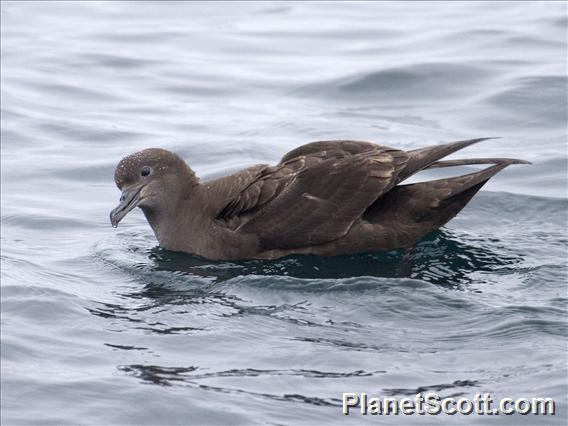Sooty Shearwater (Ardenna grisea)

Sooty Shearwater (Ardenna grisea)
×


Sooty Shearwater (Ardenna grisea)
About Sooty Shearwater (Ardenna grisea)
- Kingdom: Animals
- Phylum: Chordates
- Class: Birds
- Order: Tubenoses
- Family: Shearwaters and Petrels
The sooty shearwater is a medium-large shearwater in the seabird family Procellariidae. In New Zealand, it is also known by its Māori name tītī, and is harvested by Māori people for muttonbird, like its relatives the wedge-tailed shearwater and the Australian short-tailed shearwater.
Source: Wikipedia
Lifelists
Trips
Visits
-
2005-02-02
Ushuaia - Beagle Channel, Argentina× -
2006-06-03
Farallones Marine Sanctuary, United States of America× -
2007-06-20
Fort Funston, United States of AmericaNot sure how many, but a continuous river a few miles out to sea.× -
2007-09-23
Monterey Bay, United States of America× -
2010-05-17
Farallones Marine Sanctuary, United States of America×× -
2012-01-03
Stewart Island, New Zealand× -
2012-01-22
Queen Charlotte Sound, New Zealand× -
2012-09-19
Sutro Heights--Baths / Land's End, United States of America× -
2012-09-19
Sutro Heights--Baths / Land's End, United States of America× -
2012-11-24
Wollongong Pelagic Trip, Australia× -
2013-08-18
Farallones Marine Sanctuary, United States of America× -
×
-
2014-11-18
Fort Funston, United States of AmericaA large feeding group of pelicans and shearwaters quite far out. ID partially based on expected.× -
×
-
×
-
×
-
×
-
×
-
×
-
×
-
×
-
2025-11-22
Eaglehawk Neck, Australia×








